Thanet as an Island | home
Thanet as an Island | Thanet Map C1830 | Bibliotheca Cantiana
Thanet as an Island
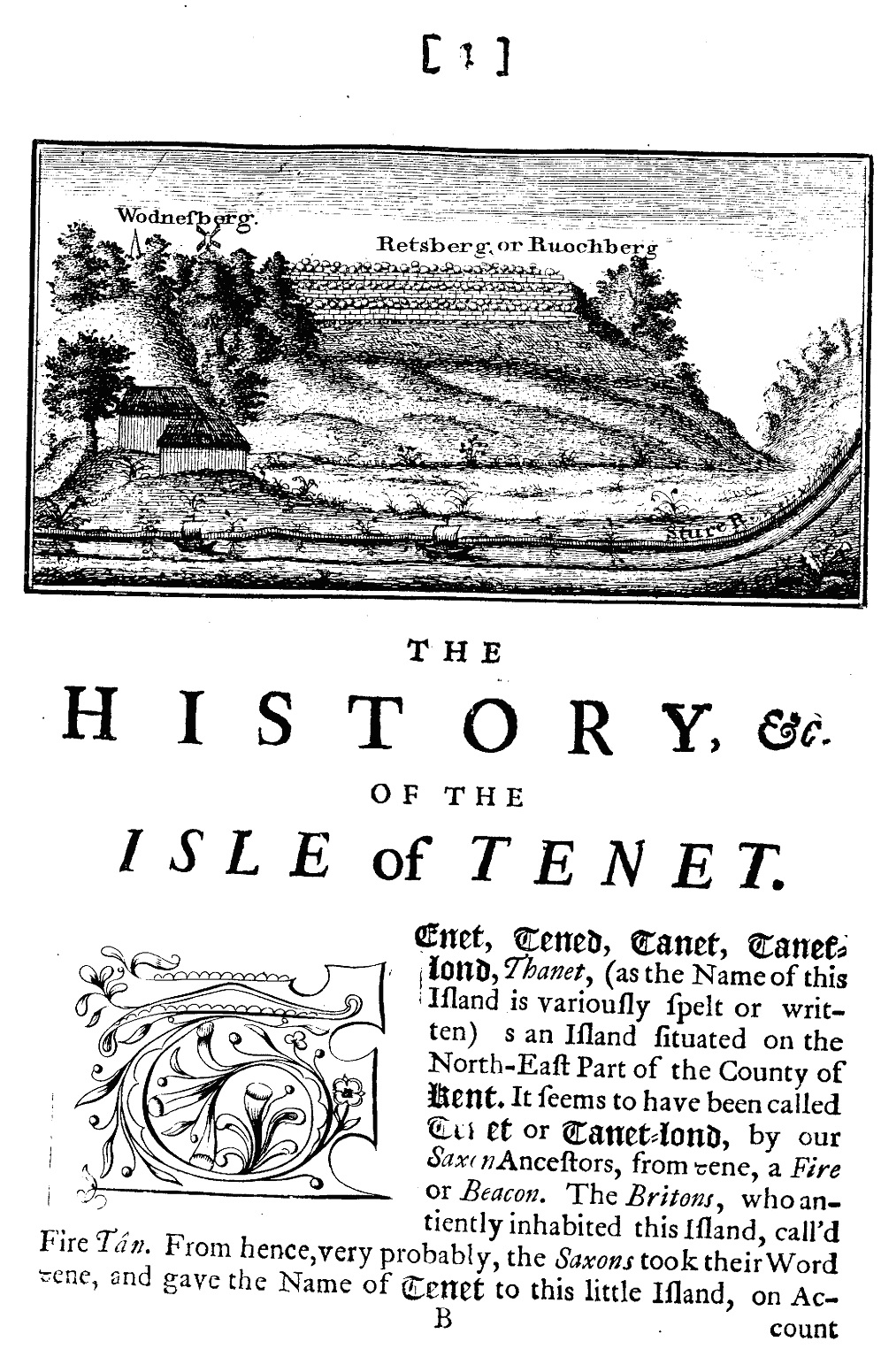
My notes for page 2
Polychronicon, author - Ranulf Higden or Higdon (c.?1280 – 12 March 1364) was an English chronicler and a Benedictine monk of the monastery of St. Werburgh in Chester.[1] He is believed to have been born in the West of England, taken the monastic vow (Benedictine) at Chester in 1299, and travelled over the north of England.
Dyscrypcyon of Englonde William Caxton (c. 1422 – c. 1491)
John Battely (also spelt 'Batteley') (1646–1708)[1] was an English antiquary and clergyman, Archdeacon of Canterbury 1688–1708. He was the author of two antiquarian works published after his death: Antiquitates Rutupinae (‘Antiquities of Richborough’) and Antiquitates S. Edmundi Burgi ad Annum MCCLXXII Perductae (‘Antiquities of St. Edmundsbury to 1272’). John Battely was the brother of Nicholas Battely, who edited William Somner’s Cantuaria sacra, the first account of the antiquities of Canterbury.
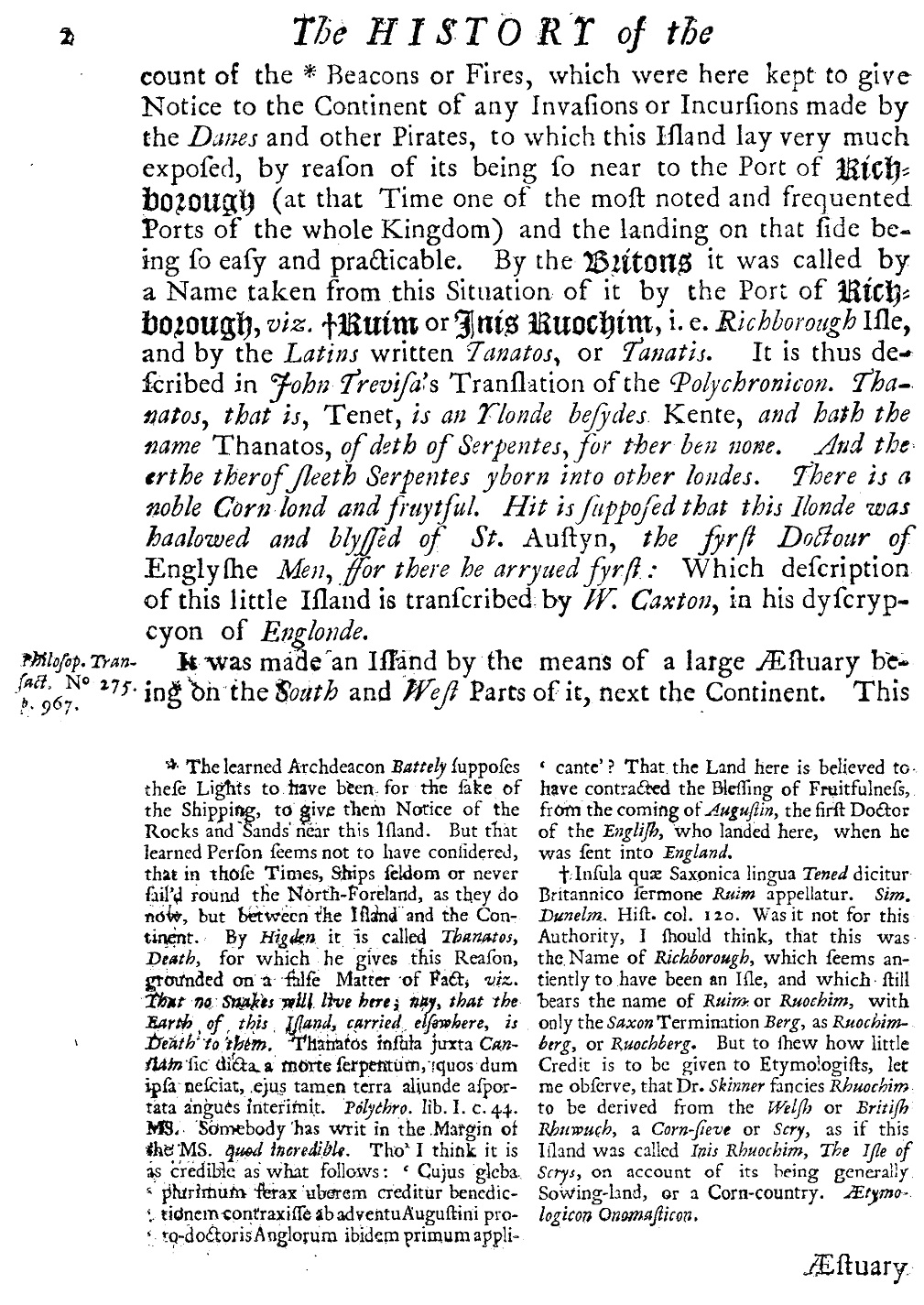
WILLIAM SOMNER (1598-1669) A treatise of the Roman ports and forts in Kent / by William Somner
William 2 Rufus 1056 to 1100
Henry I (c. 1068 – 1 December 1135)
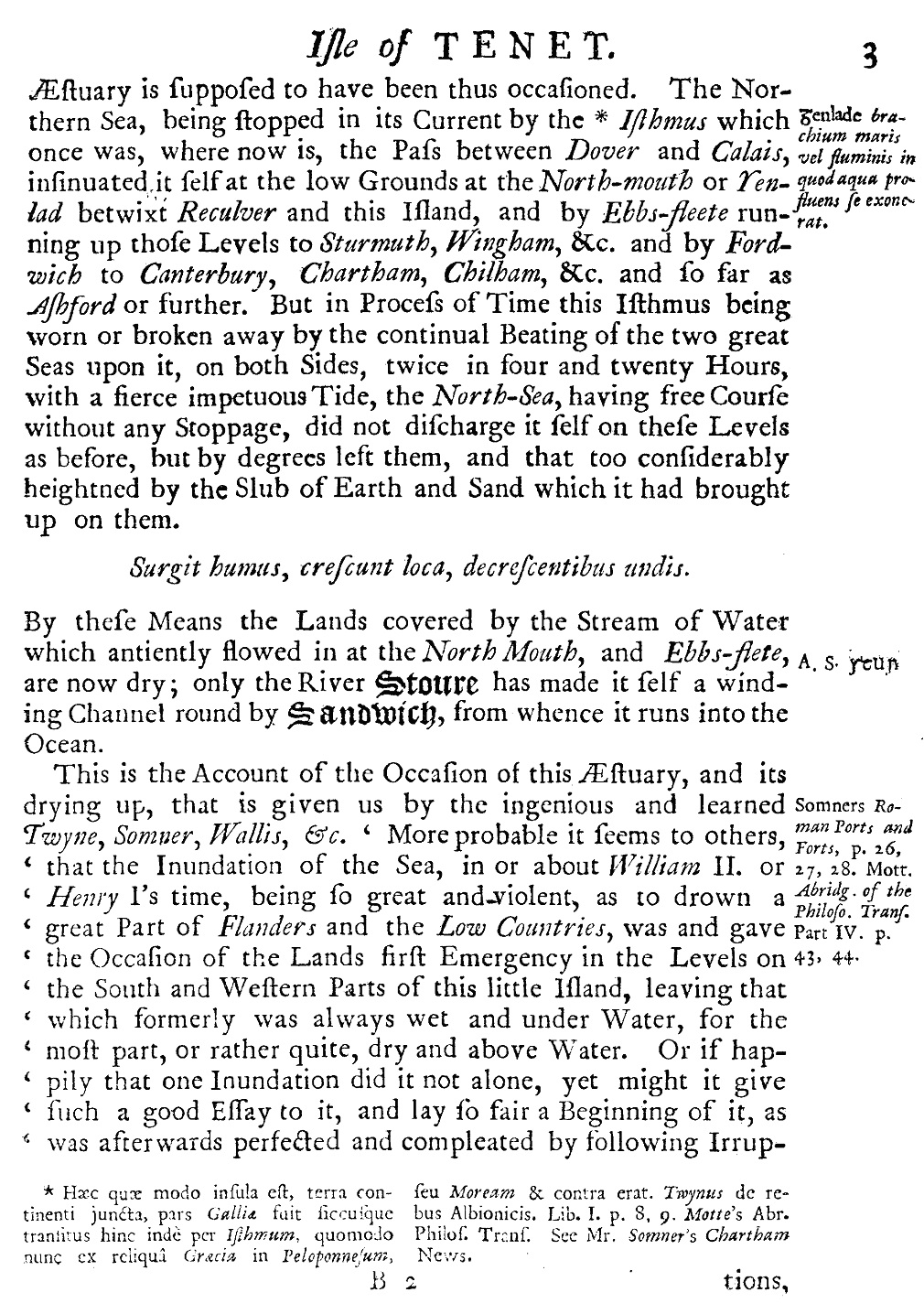
Henry II (5 March 1133 – 6 July 1189)
A. PERAMBULATION. OF. KENT: CONTEINING THE. DESCRIPTION, HYSTORIE, AND CUSTOMES. OF. That Shire. WRITTEN IN THE YEERE 1570,. By William Lambarde, of Lincolnes Inne, Gent: First published in the Year 1576,.
Emanuel van Meteren or Meteeren (6 September 1535 – 11 April 1612)
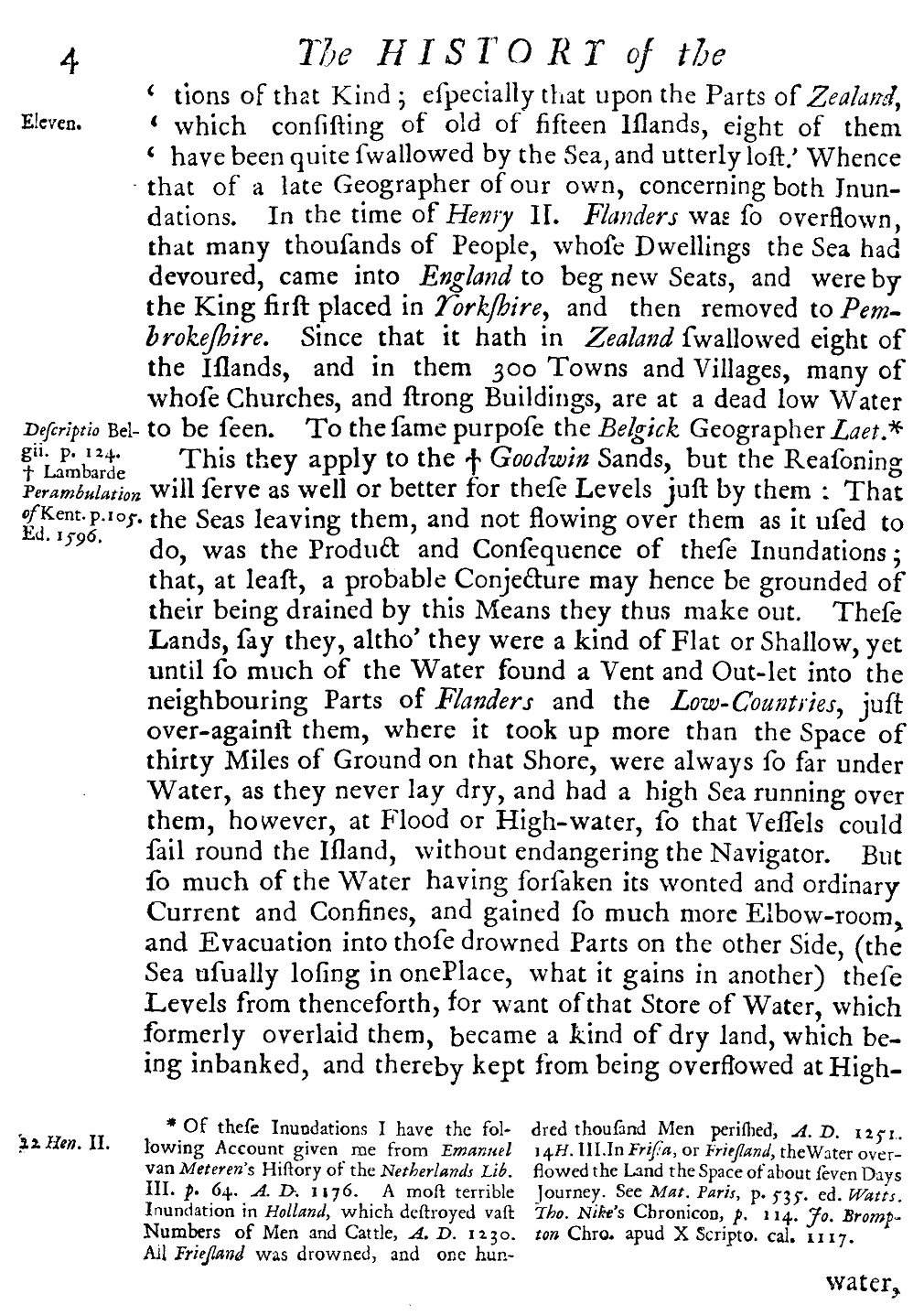
Saint Austin was a holy monk and sent in to England, to preach the faith of our Lord Jesu Christ, by Saint Gregory, then being pope of Rome.
Pope Saint Gregory I (Latin: Gregorius I; c.?540 – 12 March 604), commonly known as Saint Gregory the Great,[1] was Pope of the Catholic Church from 3 September 590 to 12 March 604.
Bede (/bi?d/ BEED; Old English: B?da, Beda; 672/3 – 26 May 735), also known as Saint Bede, Venerable Bede, and Bede the Venerable (Latin: Beda Venerabilis), was an English monk at the monastery of St. Peter and its companion monastery of St. Paul in the Kingdom of Northumbria of the Angles (contemporarily Monkwearmouth–Jarrow Abbey in Tyne and Wear, England).
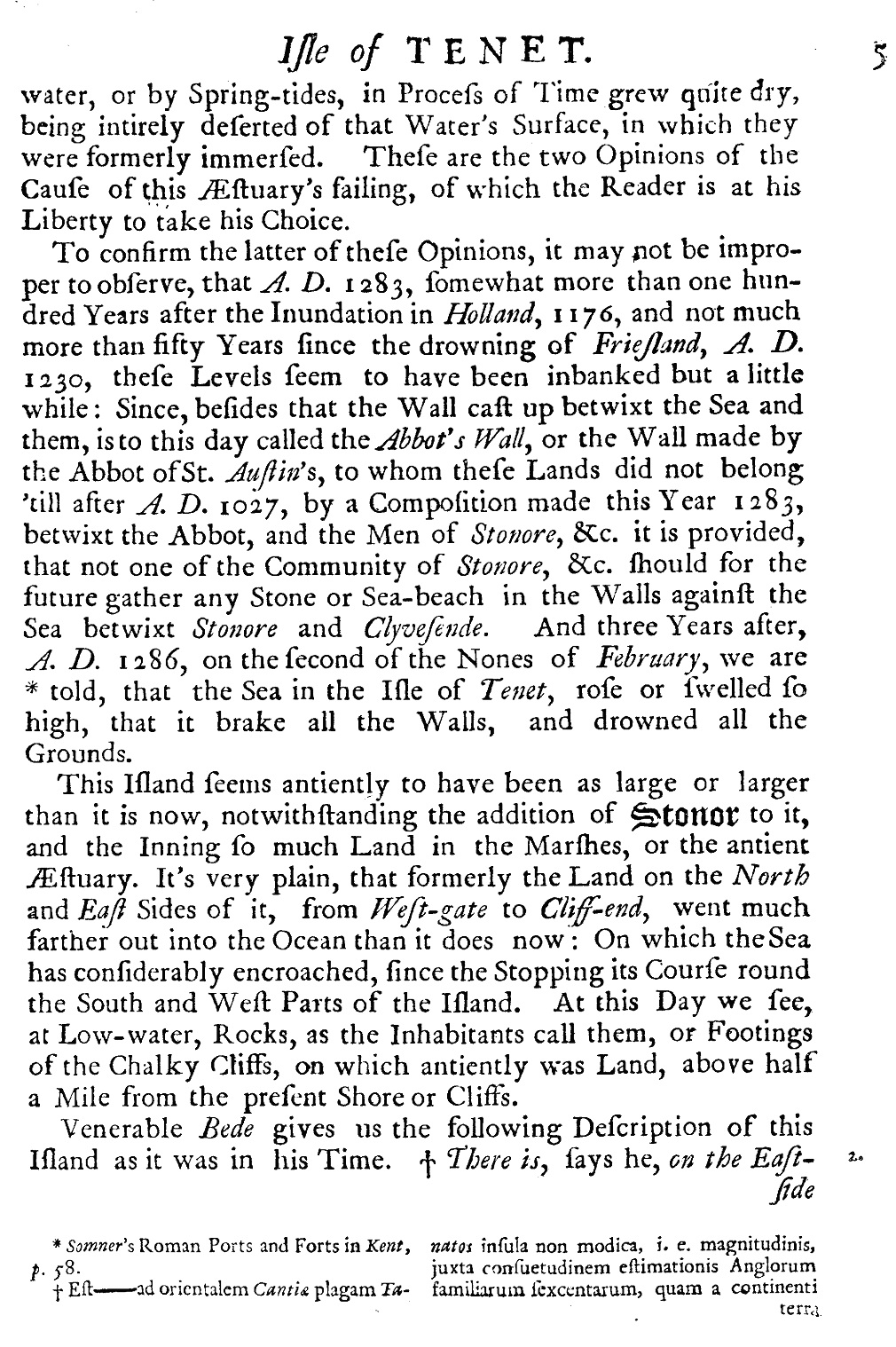

John Twine (1505-1580) the Kentish
antiquarian cited by Lambarde as believing that the Folkestone coastline
was famous in Roman times for its oysters.2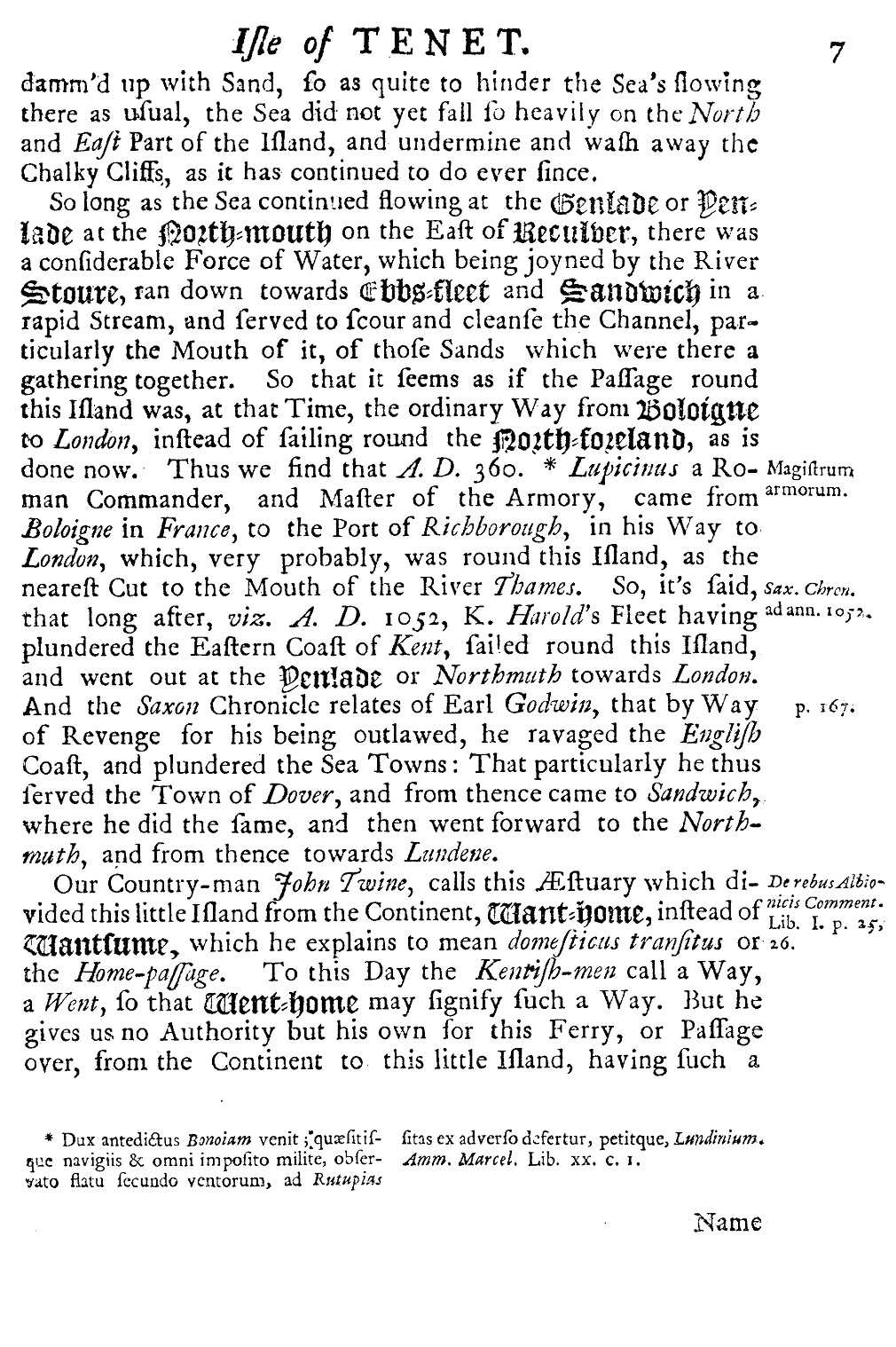

Sir Thomas More (February 1478 – 6 July 1535)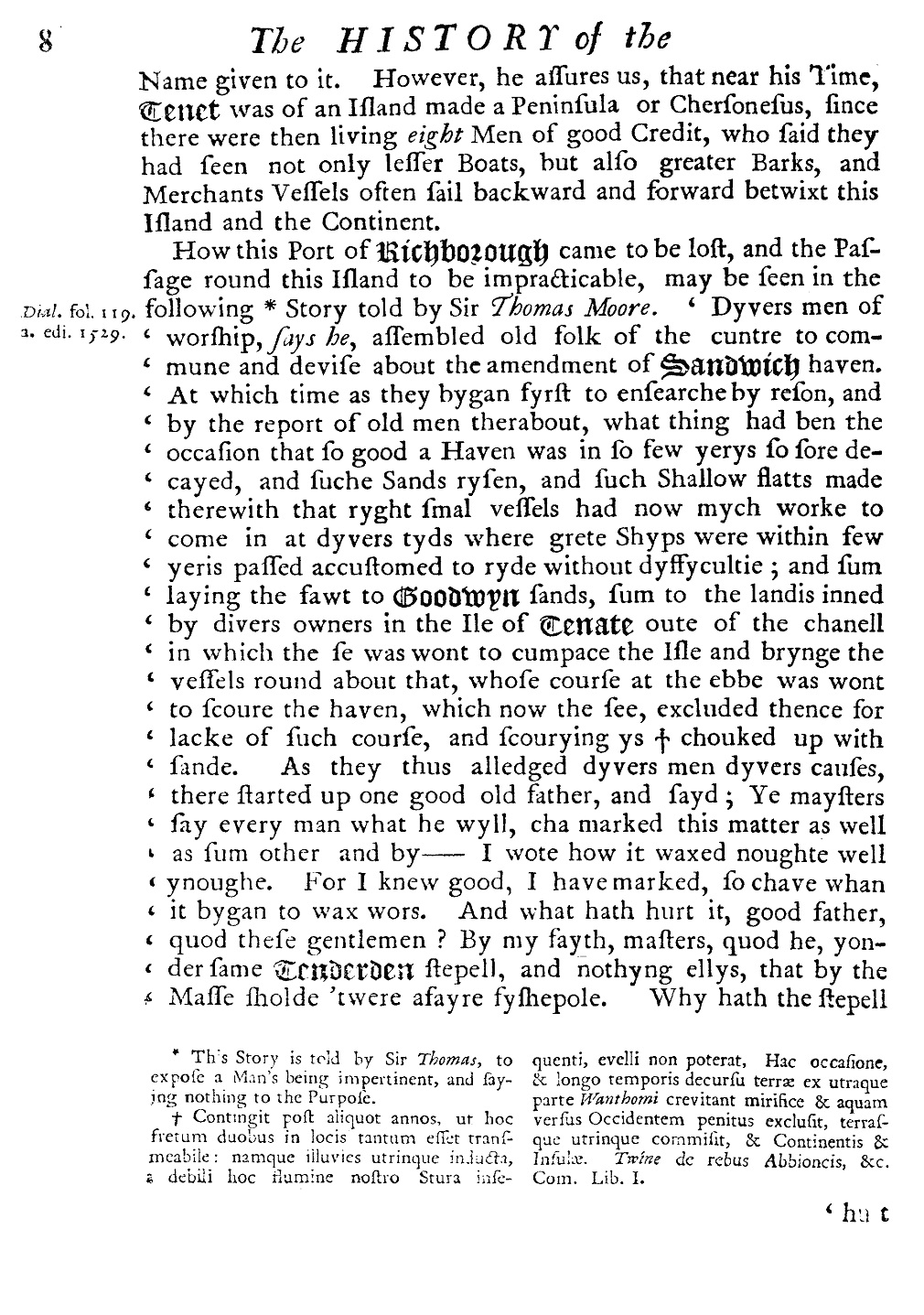

Bede (/bi?d/ BEED; Old English: B?da, Beda; 672/3 – 26 May 735)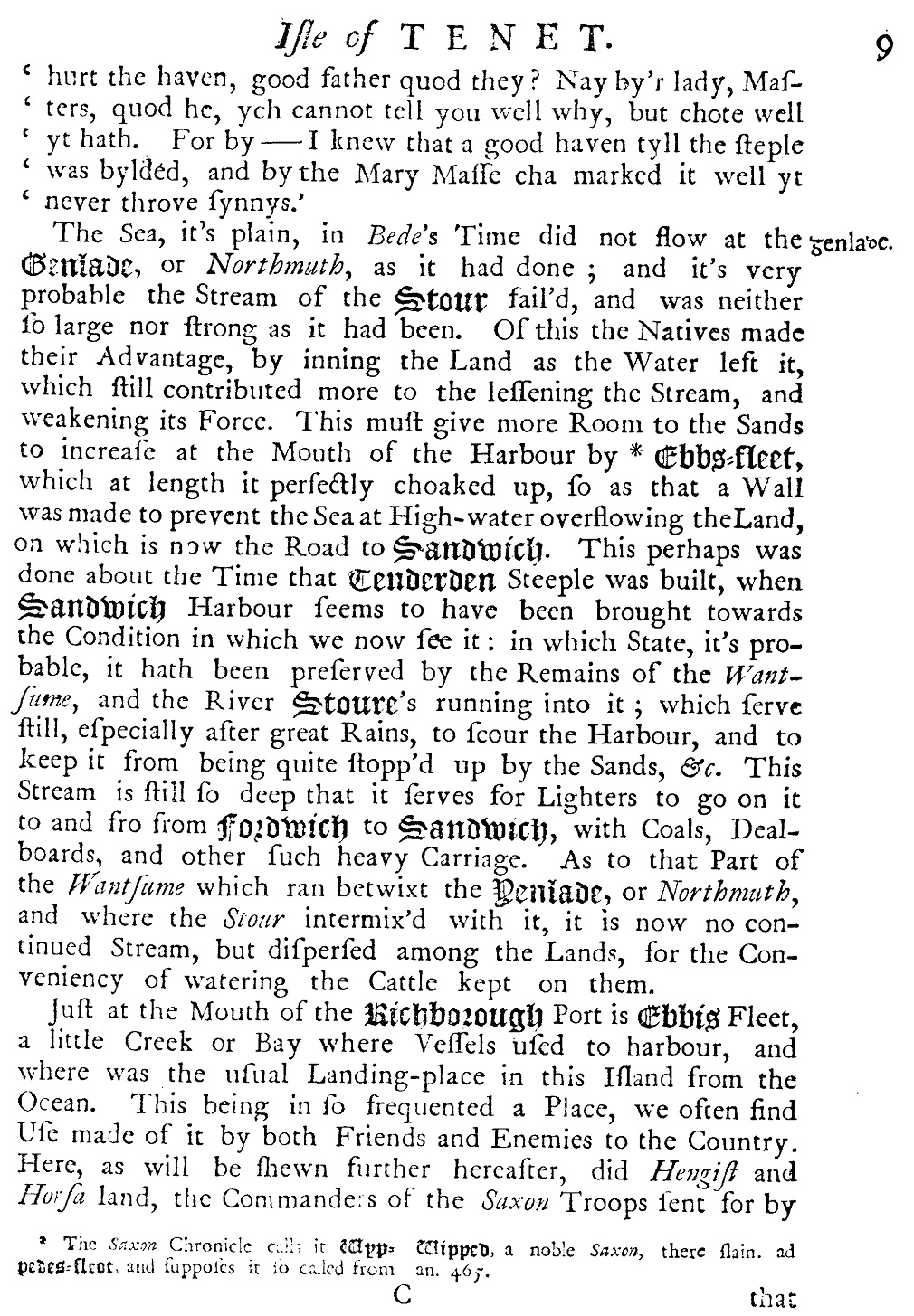
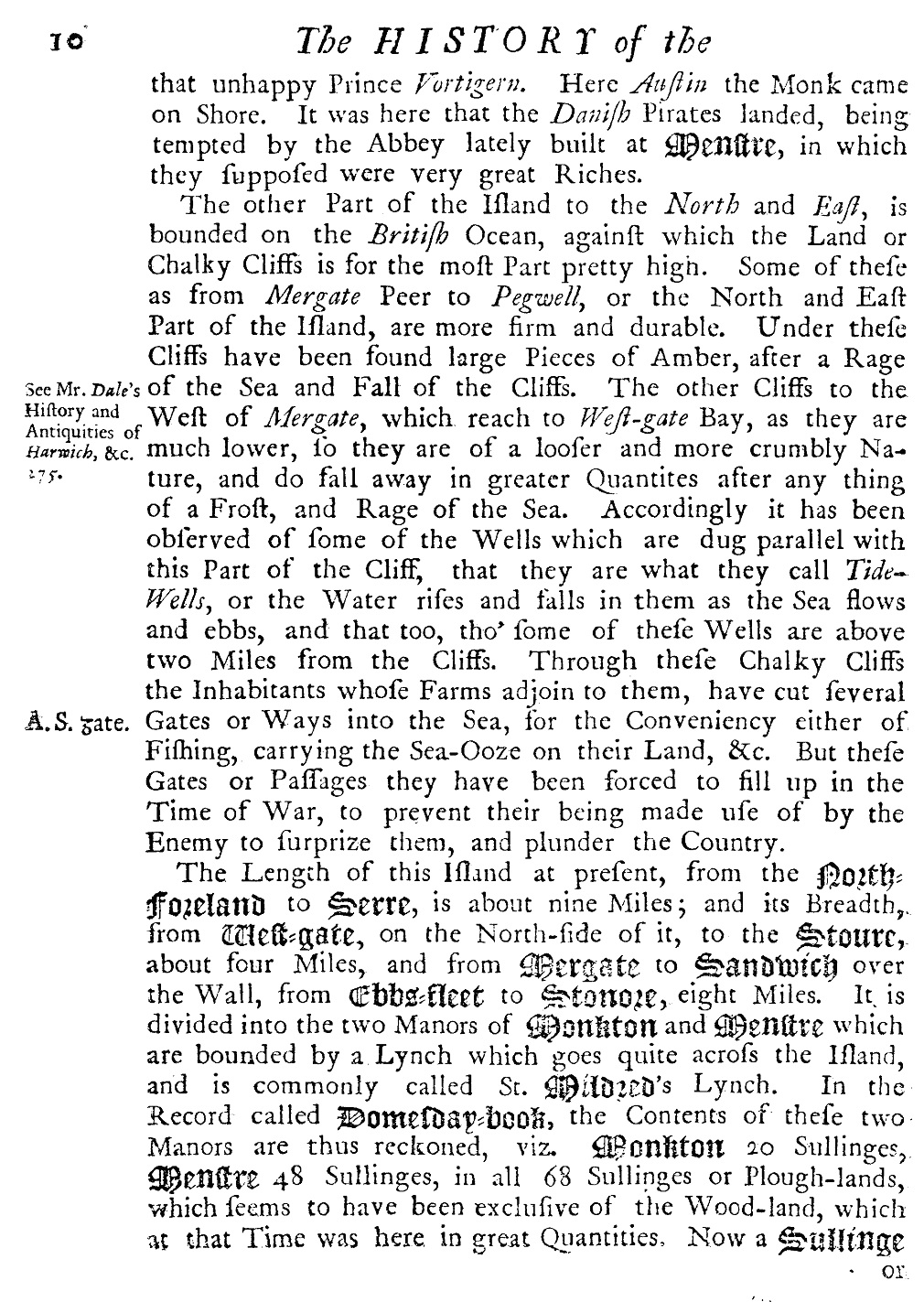


Chap. XXV. How Augustine, coming into Britain, first preached in the Isle of Thanet to the King of Kent, and having obtained licence from him, went into Kent, in order to preach therein. [597 a.d.]
Augustine, thus strengthened by the encouragement of the blessed Father Gregory, returned to the work of the Word of God, with the servants of Christ who were with him, and arrived in Britain. The powerful Ethelbert was at that time king of Kent;109 he had extended his dominions as far as the boundary formed by the great river Humber, by which the Southern Saxons are divided from the Northern. On the east of Kent is the large Isle of Thanet, containing, according to the English way of reckoning, 600 families,110 divided from the mainland by the river Wantsum,111 which is about three furlongs in breadth, and which can be crossed only in two places; for at both ends it runs into the sea. On this island landed112 the servant of the Lord, Augustine, and his companions, being, as is reported, nearly forty men. They had obtained, by order of the blessed Pope Gregory, interpreters of the nation of the Franks,113 and sending to Ethelbert, signified that they [pg 046] were come from Rome, and brought a joyful message, which most undoubtedly assured to those that hearkened to it everlasting joys in heaven, and a kingdom that would never end, with the living and true God. The king hearing this, gave orders that they should stay in the island where they had landed, and be furnished with necessaries, till he should consider what to do with them. For he had before heard of the Christian religion, having a Christian wife of the royal family of the Franks, called Bertha;114 whom he had received from her parents, upon condition that she should be permitted to preserve inviolate the rites of her religion with the Bishop Liudhard,115 who was sent with her to support her in the faith. Some days after, the king came into the island, and sitting in the open air, ordered Augustine and his companions to come and hold a conference with him. For he had taken precaution that they should not come to him in any house, lest, by so coming, according to an ancient superstition, if they practised any magical arts, they might impose upon him, and so get the better of him. But they came endued with Divine, not with magic power, bearing a silver cross for their banner, and the image of our Lord and Saviour painted on a board; and chanting litanies, they offered up their prayers to the Lord for the eternal salvation both of themselves and of those to whom and for whom they had come. When they had sat down, in obedience to the king's commands, and preached to him and his attendants there present [pg 047] the Word of life, the king answered thus: “Your words and promises are fair, but because they are new to us, and of uncertain import, I cannot consent to them so far as to forsake that which I have so long observed with the whole English nation. But because you are come from far as strangers into my kingdom, and, as I conceive, are desirous to impart to us those things which you believe to be true, and most beneficial, we desire not to harm you, but will give you favourable entertainment, and take care to supply you with all things necessary to your sustenance; nor do we forbid you to preach and gain as many as you can to your religion.” Accordingly he gave them an abode in the city of Canterbury,116 which was the metropolis of all his dominions, and, as he had promised, besides supplying them with sustenance, did not refuse them liberty to preach. It is told that, as they drew near to the city, after their manner, with the holy cross, and the image of our sovereign Lord and King, Jesus Christ, they sang in concert this litany: “We beseech thee, O Lord, for Thy great mercy, that Thy wrath and anger be turned away from this city, and from Thy holy house, for we have sinned. Hallelujah.”